Intro
Discover the 5 causes of Menieres Disease, including inner ear issues, viral infections, and genetic factors, to understand this vestibular disorder and its symptoms, such as vertigo and tinnitus.
Meniere's disease is a disorder of the inner ear that affects balance and hearing. The symptoms of Meniere's disease can be debilitating, causing vertigo, tinnitus, hearing loss, and a feeling of fullness in the ear. Understanding the causes of Meniere's disease is crucial for developing effective treatment strategies. While the exact cause of Meniere's disease is still not fully understood, research has identified several factors that contribute to its development.
The importance of understanding Meniere's disease lies in its impact on the quality of life of those affected. The unpredictable nature of the symptoms can make everyday activities challenging, affecting not only the individual but also their family and friends. Moreover, the lack of a cure for Meniere's disease makes it essential to focus on management and prevention strategies. By exploring the causes of Meniere's disease, we can better understand how to mitigate its effects and improve the lives of those living with this condition.
Meniere's disease is a complex condition, and its causes are multifaceted. Research has shown that a combination of genetic, environmental, and physiological factors contributes to the development of the disease. In this article, we will delve into the 5 main causes of Meniere's disease, exploring the latest research and findings. By understanding these causes, we can gain valuable insights into the development and progression of the disease, ultimately leading to better treatment options and improved outcomes for those affected.
Introduction to Meniere's Disease Causes
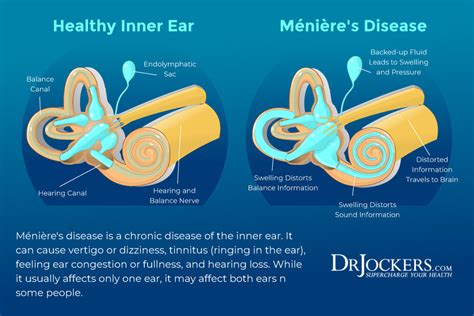
Genetic Predisposition
Genetic predisposition is believed to play a significant role in the development of Meniere's disease. Research has shown that individuals with a family history of the disease are more likely to develop it themselves. This suggests that there may be a genetic component to the disease, with certain genetic mutations increasing the risk of developing Meniere's disease. Further research is needed to fully understand the genetic factors involved in Meniere's disease, but it is clear that genetic predisposition is a significant contributing factor.Causes of Meniere's Disease
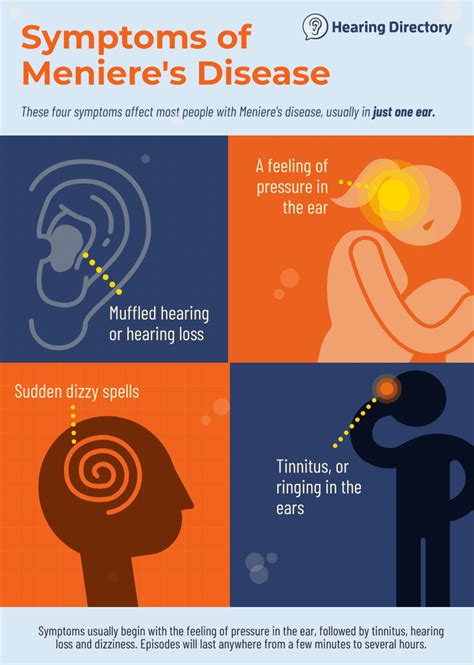
Viral Infections
Viral infections, such as herpes simplex virus, have been implicated in the development of Meniere's disease. Research has shown that viral infections can cause inflammation in the inner ear, leading to damage to the delicate structures responsible for balance and hearing. This inflammation can disrupt the normal functioning of the inner ear, leading to the symptoms of Meniere's disease.Role of Allergic Reactions
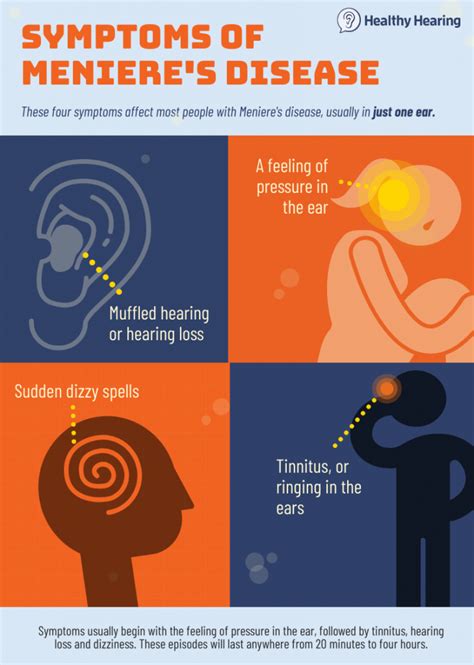
Trauma and Meniere's Disease
Trauma, such as a head injury, can also contribute to the development of Meniere's disease. Research has shown that trauma can cause damage to the inner ear, leading to inflammation and disruption of the normal functioning of the delicate structures responsible for balance and hearing. This can lead to the symptoms of Meniere's disease, including vertigo, tinnitus, and hearing loss.Abnormal Immune Responses
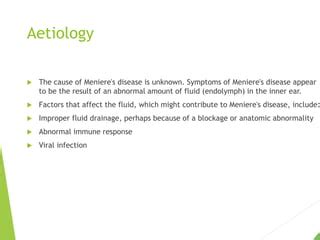
Other Potential Causes
In addition to the five main causes of Meniere's disease, there are several other potential causes that have been identified. These include: * Autoimmune disorders, such as lupus or rheumatoid arthritis * Infections, such as Lyme disease or syphilis * Certain medications, such as antibiotics or diuretics * Hormonal changes, such as those experienced during pregnancy or menopauseTreatment and Management of Meniere's Disease
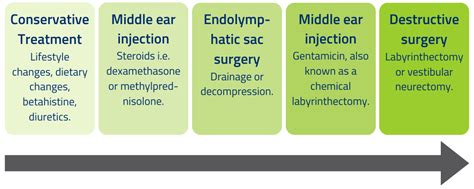
Future Directions
Research into the causes of Meniere's disease is ongoing, and new discoveries are being made regularly. Future directions for research include: * Investigating the genetic factors involved in Meniere's disease * Developing new treatments, such as gene therapy or stem cell therapy * Improving our understanding of the immune system's role in Meniere's diseaseWhat are the symptoms of Meniere's disease?
+The symptoms of Meniere's disease include vertigo, tinnitus, hearing loss, and a feeling of fullness in the ear.
Is Meniere's disease curable?
+While there is no cure for Meniere's disease, there are several treatment and management options available to reduce symptoms and improve quality of life.
Can Meniere's disease be prevented?
+While there is no sure way to prevent Meniere's disease, reducing stress, avoiding allergens, and maintaining a healthy lifestyle may help reduce the risk of developing the disease.
How is Meniere's disease diagnosed?
+Meniere's disease is typically diagnosed based on a combination of medical history, physical examination, and diagnostic tests, such as hearing tests and balance tests.
What are the treatment options for Meniere's disease?
+Treatment options for Meniere's disease include medications, vestibular rehabilitation therapy, hearing aids, and lifestyle changes, such as reducing stress and avoiding allergens.
In conclusion, Meniere's disease is a complex condition with multiple causes and contributing factors. By understanding the 5 main causes of Meniere's disease, we can better develop effective treatment and management strategies to improve the lives of those affected. We invite you to share your thoughts and experiences with Meniere's disease in the comments below, and to share this article with anyone who may be affected by this condition. Together, we can work towards a better understanding of Meniere's disease and improved outcomes for those living with this condition.
